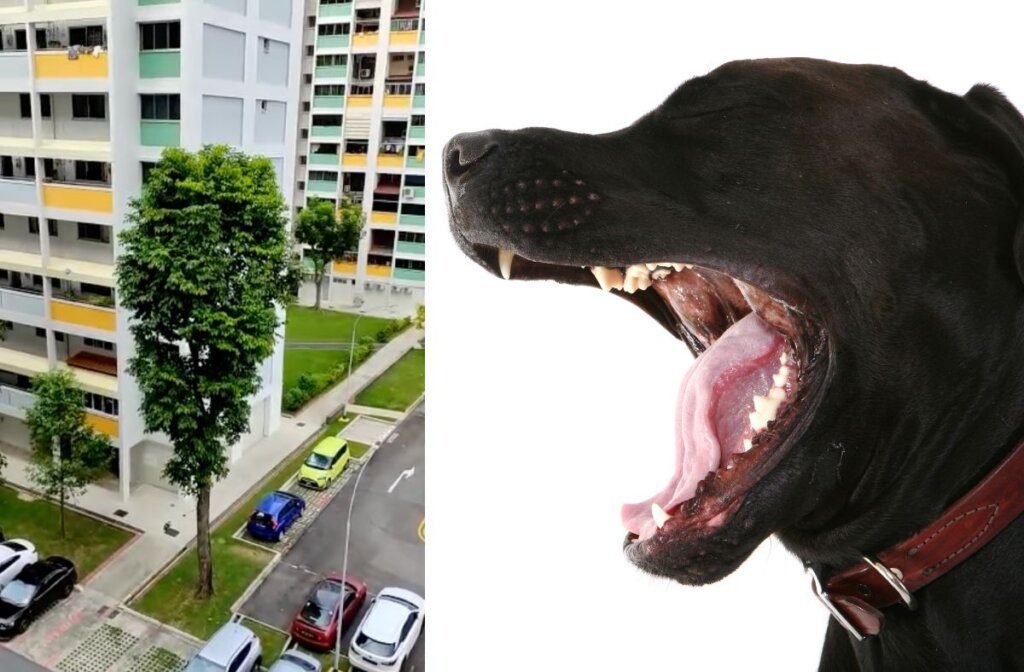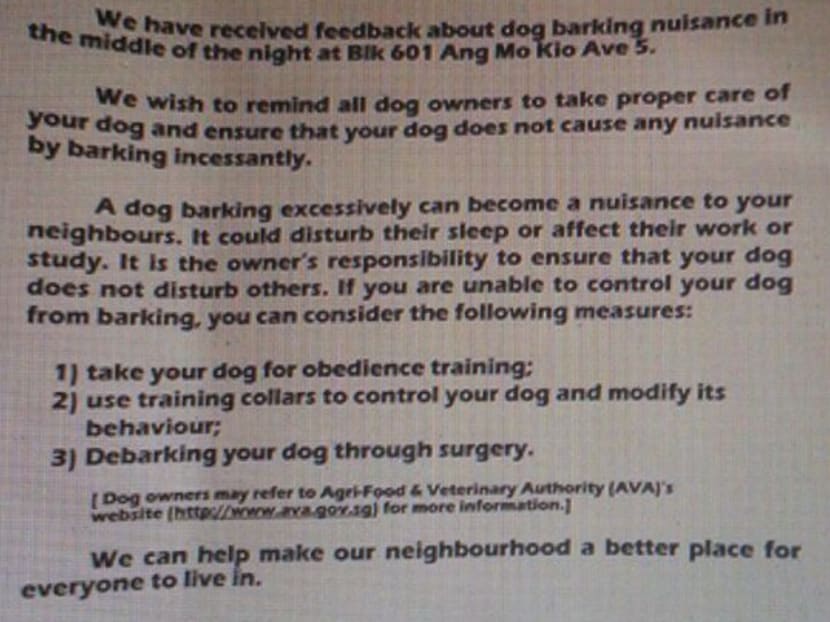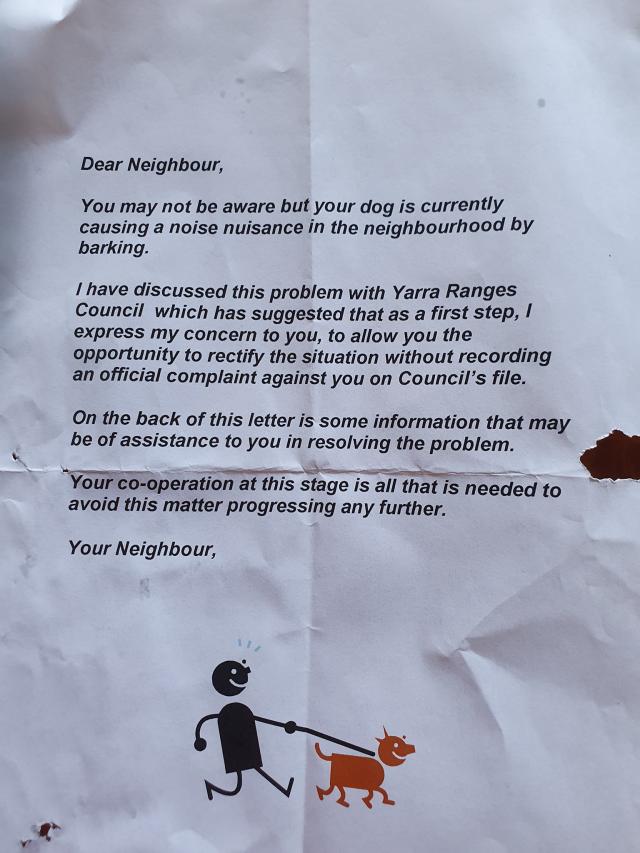Table of Contents
Living in a peaceful neighborhood can be blissful, but what happens when an incessantly barking dog disrupts the tranquility? If you find yourself pondering over this predicament in Singapore, you might be wondering if you can file a complaint about your neighbor’s dog barking. The good news is that you have options to address this nuisance, ensuring a harmonious living environment for everyone. In this article, we will explore the steps you can take to deal with the situation effectively, with the aim of maintaining a friendly rapport with your neighbor while finding a resolution to the barking issue.
Understanding the Noise Pollution Act and Complaint Process
The Noise Pollution (Control) Rules
Living in a peaceful environment is something we all cherish, but sometimes excessive noise from our surroundings can disrupt our daily lives. In Singapore, the Noise Pollution (Control) Rules have been implemented to ensure that noise levels are kept at a reasonable limit. These rules outline the permissible noise limits and provide guidelines on managing noise pollution.
Definition of Excessive Noise
Before you proceed with filing a complaint about your neighbor’s dog barking, it’s important to understand what qualifies as excessive noise under the Noise Pollution Act. According to the Act, excessive noise refers to any sound that unreasonably disrupts the tranquility of a residential area. This includes constant barking from a dog that is causing significant annoyance or disturbance to you and others in the vicinity.
The Noise Control Program
To tackle noise pollution effectively, the government has implemented a comprehensive Noise Control Program. This program focuses on promoting awareness among residents and encouraging responsible behavior towards noise management. It also ensures that appropriate measures are taken to control noise levels and address complaints promptly.
The Complaint Process
If you find yourself dealing with incessant barking from your neighbor’s dog, it is essential to follow the proper complaint process outlined by the authorities. This process is designed to resolve noise-related disputes and maintain harmony within the community. The steps involve gathering evidence, attempting to resolve the issue informally, seeking mediation if necessary, and, if all else fails, taking legal actions with the concerned authorities.
Gathering Evidence
Recording the Duration and Frequency of the Dog’s Barking
Before taking any further steps, it is crucial to gather evidence of the dog’s excessive barking. Keep a record of when the barking occurs, noting down the duration and frequency. This information will help establish a pattern and a strong case when filing a complaint.
Taking Videos or Audio Recordings
To strengthen your case further, consider capturing videos or audio recordings of the dog’s barking. Ensure that these recordings clearly depict the extent of the disturbance caused by the dog. Date stamp the recordings and save them as evidence to present when required.
Witness Statements
If any of your neighbors have also been affected by the constant barking, it is advisable to seek their cooperation and gather witness statements. These statements will add credibility to your complaint and demonstrate that the noise disturbance is not an isolated issue.

Getting to Know Your Neighbors and Their Dog Better
Initiating a Friendly Conversation
Before escalating the matter, it is always a good idea to approach your neighbor in a friendly and respectful manner. Initiate an open conversation and express your concerns about the excessive barking. Sometimes, people may not be aware of the disturbance their pets are causing, and a polite conversation can help them understand the impact on their neighbors.
Understanding the Dog’s Behavior
While talking to your neighbor, try to understand the root cause of the dog’s barking. Is it due to separation anxiety, boredom, or some other reason? Gaining insight into the dog’s behavior will help in finding a more suitable solution.
Cooperative Solutions
Work with your neighbor to come up with cooperative solutions that can address the issue effectively. This could involve exploring training options for the dog, implementing noise-reducing measures in their home, or establishing mutually agreed quiet hours during the day.
Mediation and Conflict Resolution
Involving the Community Mediation Centre
If your attempts to resolve the issue directly with your neighbor prove unsuccessful, the next step is to involve the Community Mediation Centre. This agency specializes in mediating disputes and conflicts within the community and can provide a neutral platform for both parties to reach a resolution.
Mediation Process
During the mediation process, a trained mediator will facilitate a conversation between you and your neighbor. They will encourage open dialogue, help identify underlying issues, and guide the discussion towards finding a mutually acceptable solution. Mediation offers a chance for both parties to express their concerns and work together towards a compromise.
Finding Common Ground
The goal of mediation is to find common ground and resolve the dispute amicably. It might involve exploring alternative arrangements such as soundproofing measures, behavioral training for the dog, or establishing stricter noise control measures. The mediator’s role is to facilitate this process and ensure that both parties are satisfied with the outcome.
Legal Actions and Authorities
Seeking Assistance from the Housing and Development Board (HDB)
If all attempts at mediation fail to resolve the issue, you can seek assistance from the Housing and Development Board (HDB). The HDB has established guidelines to ensure a harmonious living environment for residents. They can provide advice and take necessary actions to address the noise disturbance caused by your neighbor’s dog.
Notifying the Agri-Food & Veterinary Authority of Singapore (AVA)
In cases where the dog’s barking is persistent and causing significant distress, it is worthwhile to notify the Agri-Food & Veterinary Authority of Singapore (AVA). The AVA is responsible for animal-related matters and can investigate complaints related to noisy animals. They may provide further guidance or take appropriate action if required.
Lodging a Complaint with the Police
If the noise disturbance remains unresolved after following the above steps, lodging a complaint with the police can be the next course of action. The police can investigate the matter further, issue warnings, or take legal action against your neighbor if necessary. However, filing a police complaint should be considered as a last resort when other avenues have been exhausted.
Seeking Professional Help
Hiring a Private Mediator
If the issue still persists, you have the option of hiring a private mediator to help facilitate resolution between you and your neighbor. Private mediators possess the necessary skills and expertise to handle complex disputes and can offer an impartial perspective to find common ground.
Consulting an Animal Behaviorist
In situations where the dog’s barking is a result of behavioral issues, seeking advice from an animal behaviorist can be beneficial. These professionals specialize in understanding and modifying animal behavior, and they can provide guidance and training techniques to address the dog’s excessive barking.
Legal Advice from a Lawyer
For complicated and escalated cases, seeking legal advice from a lawyer experienced in noise-related disputes can provide valuable insights. A lawyer can guide you through the legal options available, help analyze the strength of your case, and represent your interests if legal action becomes necessary.

Understanding the Responsible Pet Ownership Act
Responsibilities of Pet Owners
To prevent and manage instances of excessive noise from pets, the Responsible Pet Ownership Act outlines the responsibilities of pet owners in Singapore. It emphasizes the need for owners to ensure their pets do not cause a nuisance to others by controlling their behavior and keeping noise levels at a minimum.
Consequences for Non-Compliance
Pet owners who fail to comply with the Responsible Pet Ownership Act may face penalties and fines. These consequences are meant to enforce responsible pet ownership and discourage behaviors that disrupt harmony in residential areas. By reporting non-compliant owners, you contribute to promoting a more peaceful living environment for everyone.
Reporting Non-Compliant Owners
If you observe instances of non-compliance with the Responsible Pet Ownership Act and notice a neighbor consistently neglecting their responsibilities, you can report them to the relevant authorities. By doing so, you play an important role in maintaining the standards of responsible pet ownership and ensuring the well-being of both pets and their human neighbors.
The Role of Community and Neighbourhood Committees
Engaging the Local Community
To address issues of noise pollution effectively, it is important to engage the local community and create awareness about responsible pet ownership. Participate in community initiatives, such as town hall meetings and neighborhood events, to discuss the impact of noise and generate support for maintaining a peaceful and harmonious environment.
Neighborhood Committee’s Intervention
The Neighborhood Committee can play a critical role in resolving conflicts related to noise disturbances caused by pets. They can facilitate discussions, promote dialogue, and encourage neighborly cooperation. Engaging your Neighborhood Committee can provide additional support and resources in finding a resolution to the problem.
Organizing Awareness Campaigns
Organizing awareness campaigns in collaboration with local authorities, community centers, and animal welfare organizations can help create a more informed and empathetic community. These campaigns can educate pet owners about the impact of excessive noise on their neighbors and emphasize the importance of responsible pet ownership.

Taking Care of Your Own Pet
Ensuring Your Own Pet is Well-Behaved
While addressing noise disturbances caused by your neighbor’s dog, it is essential to ensure that your own pet is well-behaved. Train your pet to minimize excessive barking and other behaviors that might lead to noise-related complaints from your neighbors. Respecting others’ right to peace and quiet is a crucial aspect of responsible pet ownership.
Limiting Noise from Your Own Household
Apart from managing your pet’s behavior, it is also important to be mindful of the noise levels emanating from your own household. Avoid causing disturbances to your neighbors with loud music, household appliances, or any other activities that may contribute to noise pollution. By practicing good noise management yourself, you set an example for others to follow.
Complying with Regulations
To contribute to a harmonious living environment, it is important to comply with the regulations and guidelines set forth by the authorities. Familiarize yourself with the Noise Pollution (Control) Rules and the Responsible Pet Ownership Act, and ensure that you are adhering to them. By doing so, you demonstrate a commitment to responsible behavior and promote a peaceful coexistence with your neighbors.
Seeking Support from Animal Welfare Organizations
Contacting the Society for the Prevention of Cruelty to Animals (SPCA)
If you believe that the dog’s barking is a result of neglect or mistreatment, reaching out to the Society for the Prevention of Cruelty to Animals (SPCA) can be a helpful step. The SPCA is dedicated to promoting the well-being of animals and can provide support and advice regarding animal welfare concerns.
Support and Advice
Animal welfare organizations can offer valuable support and advice during difficult situations involving pets and noise disturbances. They can provide guidance on managing the behavior of your neighbor’s dog or offer resources to assist you in resolving the issue through non-confrontational methods.
Possible Interventions
Depending on the specific circumstances, animal welfare organizations can potentially intervene in cases of severe neglect or cruelty towards animals. They may conduct investigations and take appropriate action to ensure the welfare of the dog and find a more suitable living situation, if necessary.
In conclusion, dealing with noise disturbances caused by a neighbor’s dog barking can be challenging, but by following the appropriate steps and seeking the necessary support, it becomes possible to find a resolution. Understanding the Noise Pollution Act, gathering evidence, fostering open communication, seeking mediation, involving relevant authorities, and promoting responsible pet ownership are all crucial aspects of addressing this issue. By approaching the matter with empathy and cooperation, together we can create a more harmonious and peaceful living environment for all.





